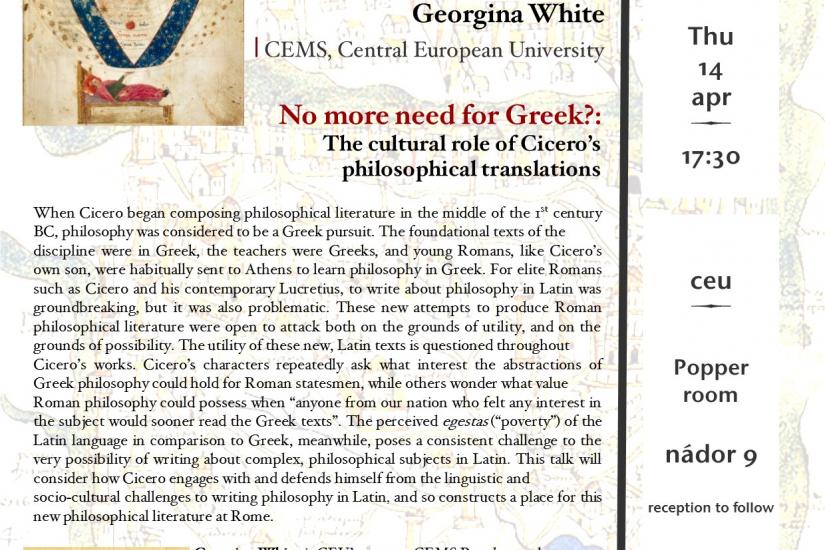
When Cicero began composing philosophical literature in the middle of the 1st century BC, philosophy was considered to be a Greek pursuit. The foundational texts of the discipline were in Greek, the teachers were Greeks, and young Romans, like Cicero’s own son, were habitually sent to Athens to learn philosophy in Greek. For elite Romans such as Cicero and his contemporary Lucretius, to write about philosophy in Latin was groundbreaking, but it was also problematic. These new attempts to produce Roman philosophical literature were open to attack both on the grounds of utility, and on the grounds of possibility. The utility of these new, Latin texts is questioned throughout Cicero’s works. Cicero’s characters repeatedly ask what interest the abstractions of Greek philosophy could hold for Roman statesmen, while others wonder what value Roman philosophy could possess when “anyone from our nation who felt any interest in the subject would sooner read the Greek texts”. The perceived egestas (“poverty”) of the Latin language in comparison to Greek, meanwhile, poses a consistent challenge to the very possibility of writing about complex, philosophical subjects in Latin. This talk will consider how Cicero engages with and defends himself from the linguistic and socio-cultural challenges to writing philosophy in Latin, and so constructs a place for this new philosophical literature at Rome.
Georgina White is CEU’s current CEMS Postdoctoral Teaching and Research Fellow in Classical Studies with a Focus on Ancient Political Thought. She received her BA in Classics from Brasenose College, Oxford, followed by an MA from the University of Pennsylvania as a Thouron Fellow. Her PhD is from Princeton University’s Classics Department and Program in Classical Philosophy, where her dissertation, entitled "Copia verborum: Cicero's Philosophical Translations", treated the literary, philosophical, and political aspects of Cicero's translations from Greek in his philosophical works. At CEU she is continuing her work on the reception of Greek philosophy at Rome and teaching a number of courses in the History and Political Thought of the ancient Graeco-Roman world.